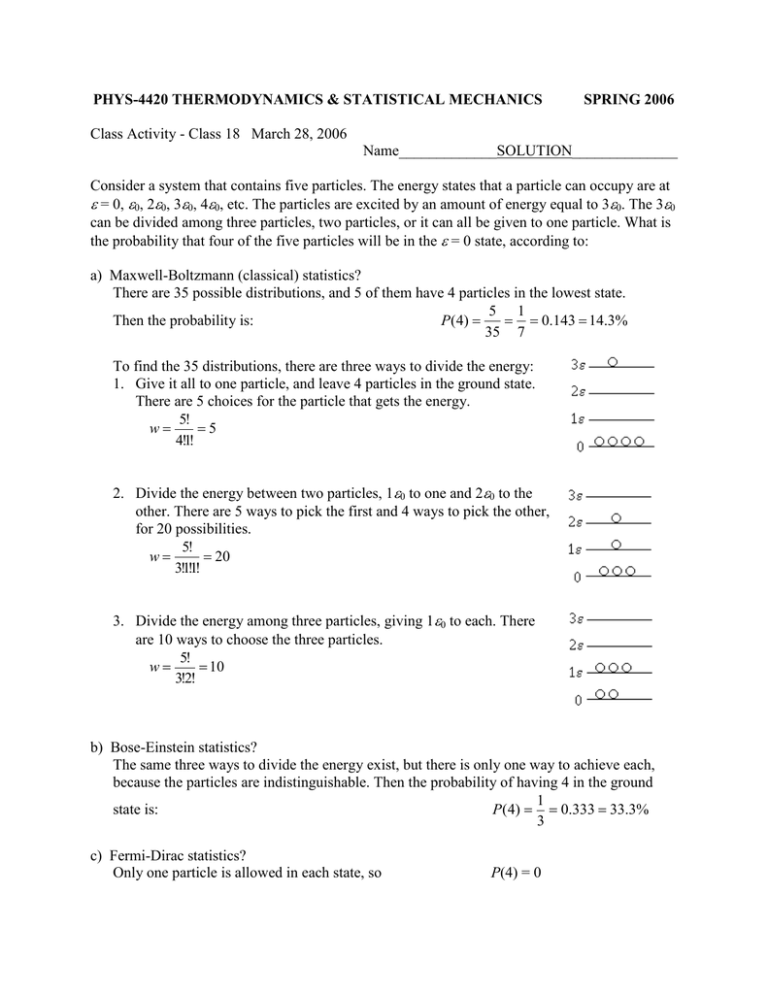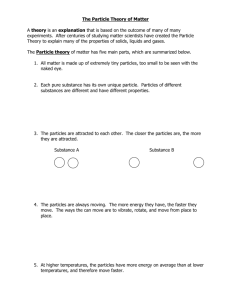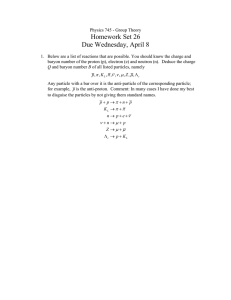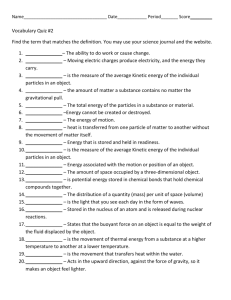act18ans.doc
advertisement

PHYS-4420 THERMODYNAMICS & STATISTICAL MECHANICS SPRING 2006 Class Activity - Class 18 March 28, 2006 Name_____________SOLUTION______________ Consider a system that contains five particles. The energy states that a particle can occupy are at = 0, , 2, 3, 4, etc. The particles are excited by an amount of energy equal to 3. The 3 can be divided among three particles, two particles, or it can all be given to one particle. What is the probability that four of the five particles will be in the = 0 state, according to: a) Maxwell-Boltzmann (classical) statistics? There are 35 possible distributions, and 5 of them have 4 particles in the lowest state. 5 1 P(4) 0.143 14.3% Then the probability is: 35 7 To find the 35 distributions, there are three ways to divide the energy: 1. Give it all to one particle, and leave 4 particles in the ground state. There are 5 choices for the particle that gets the energy. 5! w 5 4!1! 2. Divide the energy between two particles, 1 to one and 2 to the other. There are 5 ways to pick the first and 4 ways to pick the other, for 20 possibilities. 5! w 20 3!1!1! 3. Divide the energy among three particles, giving 1 to each. There are 10 ways to choose the three particles. 5! w 10 3!2! b) Bose-Einstein statistics? The same three ways to divide the energy exist, but there is only one way to achieve each, because the particles are indistinguishable. Then the probability of having 4 in the ground 1 P(4) 0.333 33.3% state is: 3 c) Fermi-Dirac statistics? Only one particle is allowed in each state, so P(4) = 0


